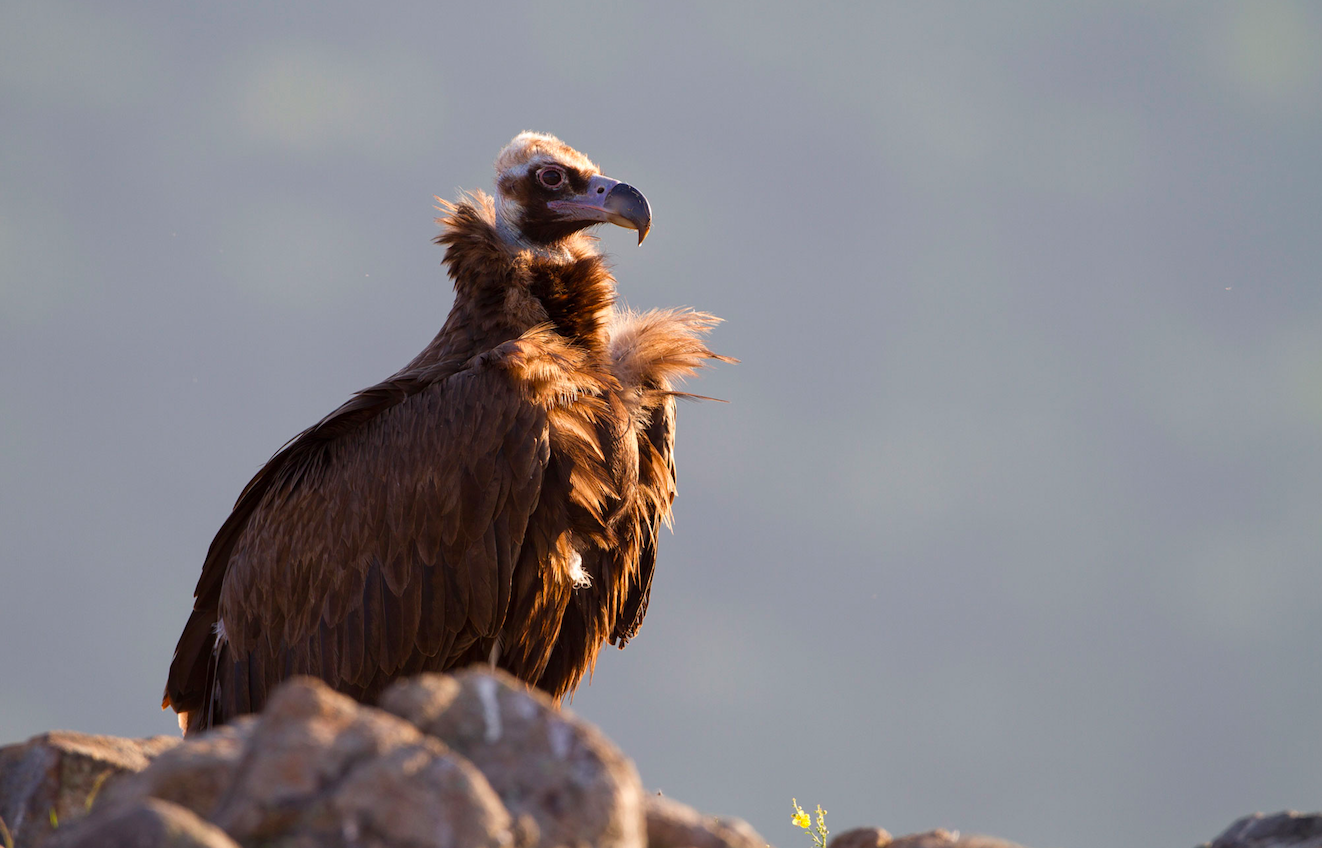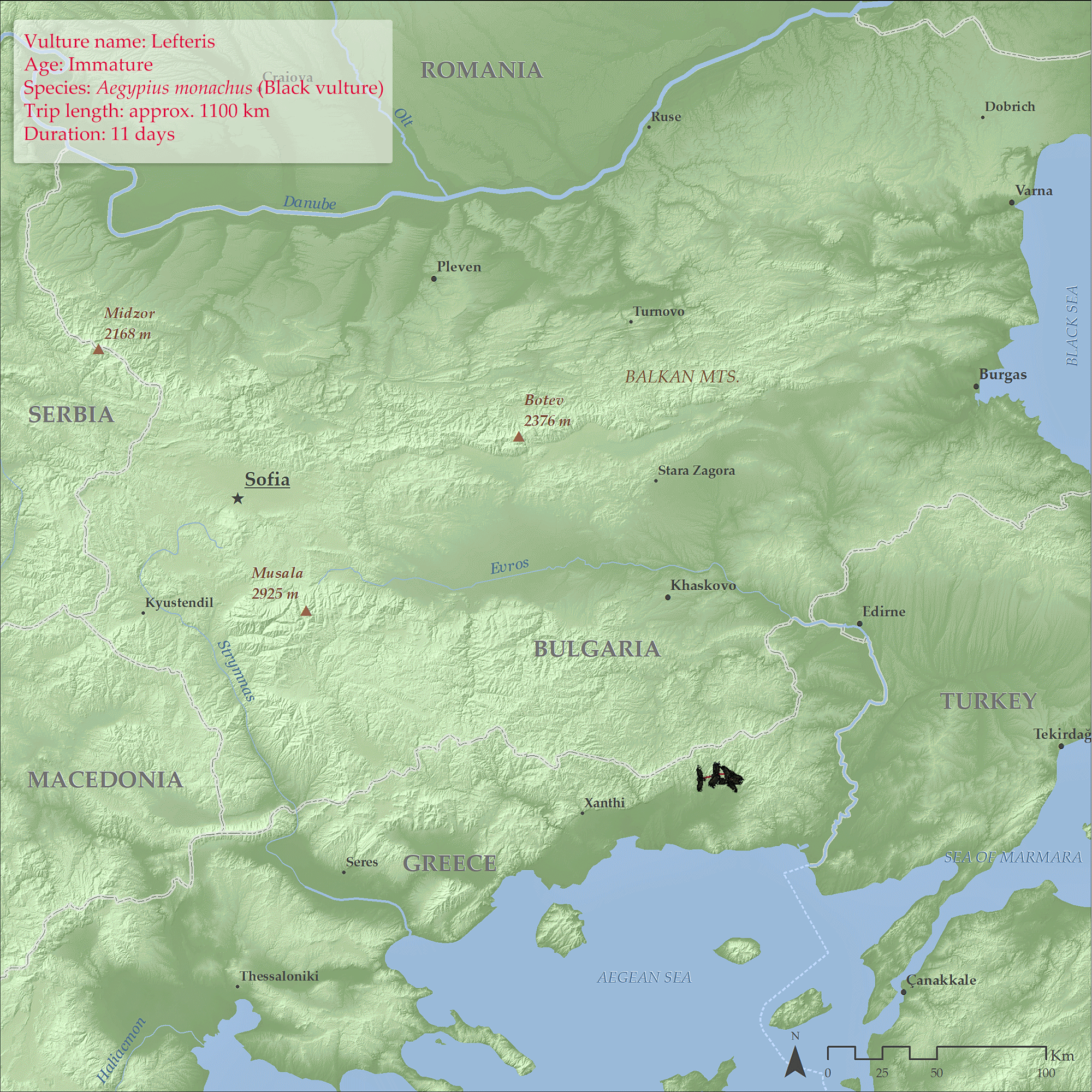The journey of the juvenile bird offers hope that efforts to reestablish the black vulture as a breeding species in Bulgaria may ultimately be successful. It also highlights the importance of maintaining a well-connected network of vulture-friendly habitats.

An immature black vulture from the only breeding colony in the Balkans recently spent more than a week roaming the skies of Bulgaria. The two year-old juvenile, named Lefteris, was born in Dadia National Park in northern Greece and tagged with a GPS transmitter as part of the ongoing LIFE Vultures project.
The black vulture is now considered extinct as a breeding species across the border from Dadia in Bulgaria, but project work includes efforts to encourage the birds to begin nesting again in the country. The journey made by Lefteris offers hope that this may happen one day in the near future.
The black vultures tagged as part of the LIFE Vultures project are traditionally named after members of the tagging team. In this case, the name Lefteris, derived from the Greek word for freedom, is particularly appropriate. While black vultures are renowned for their majestic aerial prowess, they are far less well-known for is their nomadic behaviour – adult black vultures are generally thought to be sedentary birds, rarely straying far from their home territory.

Lefteris surprised those monitoring his movements by travelling over 1000 kilometres during the 11-day period. He set out on his journey from the Rhodopes Mountains in Bulgaria, crossing the Sredna Gora and Stara Planina mountain ranges to reach the plains of northern Bulgaria. He then headed west and explored Bulgaria’s Central Balkan National Park for five days, before returning to Dadia.
Black vultures from Dadia often visit the Rhodope Mountains in Bulgaria foraging for food, with some venturing even farther afield. This spring a young female vulture named Helena wandered as far as Romania, while previously a tagged bird reached the Turkish capital Ankara.
The itineraries of many wandering juvenile black vultures include Natura 2000 sites, which are critically important to a wide range of bird species. The journey of Lefteris and other birds illustrates why it is important to preserve these habitats and their natural connectivity. The integrity of the network allows the vultures to use it as a system of natural corridors and refuges, meaning wandering birds can spend more time in Bulgaria in search of new territory, food and (hopefully) potential breeding sites.
Starting in 2016, the five-year LIFE Vultures project was developed by Rewilding Europe, in collaboration with the Rewilding Rhodopes Foundation and a range of other partners. Focusing on the Rhodope Mountains rewilding area in Bulgaria, as well as a section of the Rhodope Mountains in northern Greece, the aim of the project is to support the recovery and further expansion of the black and griffon vulture populations in this part of the Balkans, mainly by improving natural prey availability, and by reducing mortality through factors such as poaching, poisoning and collisions with power lines.
The tagging being carried as part of the LIFE Vultures project – the first of its kind in the Rhodope Mountains for griffon vultures, and the biggest for black vultures in the whole of the Balkans – is essential to maximising its success. As GPS data is systematically fed into a Geographic Information System (GIS), together with a range of other variables, so the rewilding team and their partners are gaining ground-breaking insight into the movement of vulture populations in the monitoring area, the various threats that they face, and the best ways to support the birds’ comeback. The newly launched Rewilding Rhodope website features a live vulture tracker showing the (almost) real time routes of tagged birds.
